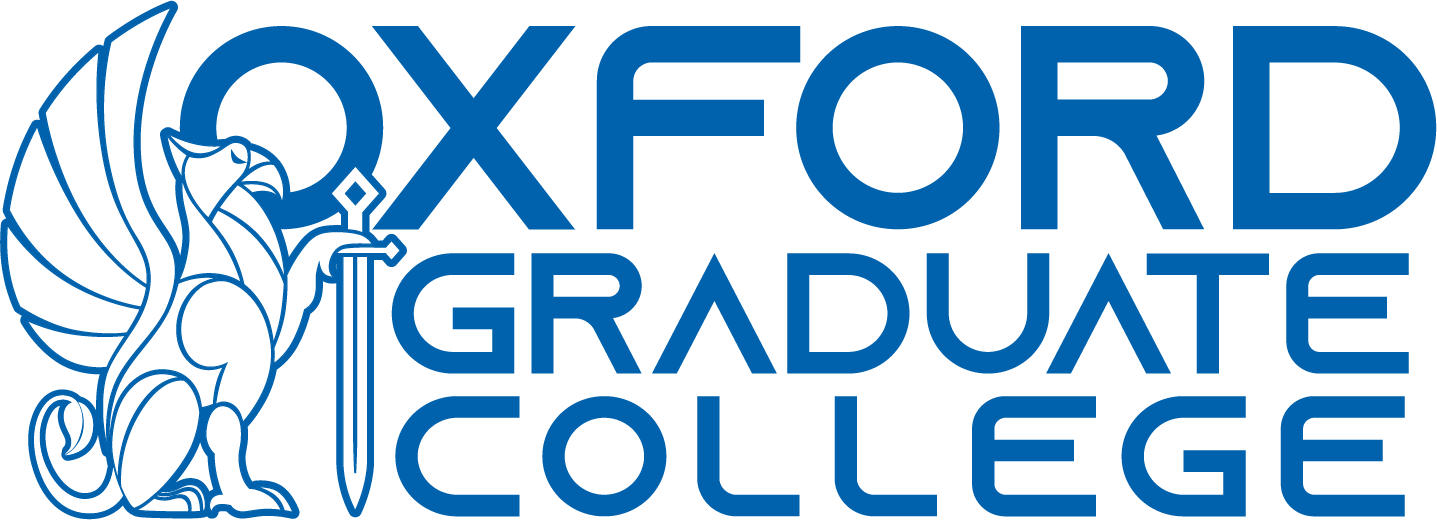
PROGRAMME SPECIFICATION
NAME OF PROGRAMME:
GRADUATE DIPLOMA- ACCOUNTING AND FINANCE
Philosophy
The Graduate Diploma Level 6 Accounting and Finance will provide you with a thorough working knowledge of accounting and finance theory and methods in the context of social science. You will learn how to prepare and interpret financial and managerial information for a variety of users, as well as gaining an understanding of the theory and practice of investment and finance. Our aim on the Post Graduate level 6 Diploma Accounting and Finance is to provide students with the knowledge, understanding and skills relevant to the main unit’s students are studying, together with a capacity for critical and evaluative thinking. To achieve this we aim to offer a stimulating, challenging, but supportive learning environment for our students, and to encourage autonomous learning. On successful completion of the Graduate Diploma Level 6, students should be able to demonstrate that these aims have been fulfilled and that you are also proficient in relevant key skills, including problem-solving, communication and teamwork.
Information on Award
| Final Award | Graduate Diploma- Accounting and Finance |
| Programme Title | Graduate Diploma- Accounting and Finance |
| LEVEL | 6 |
| Duration of Course | Suggested time 18 Months
Can be completed earlier in a shorter time. |
| Entry Requirements | Applicants must:
· Possess at minimum any related Associate Degree in the relevant field. · EDUQUAL Level 5 Diploma · RQF/QCF/NQF Level 5 Diploma · SCQF Level 8 Diploma · EQF/FHEQ Level 5 Diploma · Be at least 21 years of age * Recognition of Prior Learning will be considered |
| CREDITS | 180 |
| Major pathways within the course – Where course can lead to different areas of emphasis | Completion of the course can encourage participants to pursue further studies into:
· MSc in Business Management · MSc in Human Resource Management · Postgraduate Diploma in Executive Management · MSc in Accounting and Finance |
| Targeted occupations for graduates | After completion of the course, graduates can serve in organizations in positions as:
· Financial Analyst · Business Consultant · Accounting Manager |
Programme Aims
| The main aims of the Graduate Diploma in Accounting and Finance are to: | · Provide you with a good understanding of the central concepts of the disciplines of accounting and finance.
· Give you the essential foundations in management, law, economics, management accounting relevant to accounting and finance. · Allow you to develop a high degree of numeracy and a capacity for reasoned thought and analysis. · Promote your capacity for critical and evaluative thinking within a stimulating and supportive environment. · Offer you the opportunity to pursue areas of personal interest via the range of optional subjects available. · Equip you to undertake a career in accountancy, finance or wider business and successfully study for a professional accountancy or other qualification. |
The Learning Outcomes
| On completion of this program, participants should be able to:
|
· Understand the strengths and limitations of different statistical and accounting techniques and critical methods.
· understand how the findings achieved by use of different accounting and financial management strategies, incentive frameworks, statistical techniques and critical methods may be used to inform managerial decisions in different countries and organizational contexts. · Understand the limits and effectiveness of different accounting, financial management, organizational, and other regulatory systems. · Understand the different roles played by managers in different functions and cultures. · Understand how far factors associated with the global and local cultural context influence decision-making within organizations. |
Programme Structure and Requirements
| UNIT TITLE | STRATEGIC LEADERSHIP |
| TQT (Hours) | 200 |
| UNIT AIM & SUMMARY | This unit provides an in-depth understanding of the key principles and practice of leadership This will enhance the individuals’ knowledge, skills and attributes to effectively engage in the role and responsibilities required of an effective team player and leader of a team; being proactive in innovation and improvement to inform strategy and business planning within the organisation. |
| UNIT TITLE | BUSINESS LAW |
| TQT (Hours) | 200 |
| UNIT AIM & SUMMARY | Business law influences almost every aspect of corporate and working life; from protection of physical and financial wellbeing, to enforcement of rights and responsibilities within the workplace. This unit aims to provide learners with an academic and practical awareness of these laws and to develop the skills necessary to operate legally within an increasingly litigious business environment. Aim of this unit is to introduce the importance of law in businesses and organisations including main features of English Legal systems, contract laws, sales of goods acts and credit transactions as well as intellectual property law. This unit will develop analytical skills in law and encourages their application to business contexts. |
| UNIT TITLE | FINANCIAL STATEMENT ANALYSIS & REPORTING |
| TQT(Hours) | 200 |
| UNIT AIM & SUMMARY | The aim of this unit is to provide you with a framework for analysing a firm’s past performance, estimating its future performance, and valuing its equity. The course integrates key concepts from accounting, finance, and economics and applies them to financial decision-making. The course focuses on teaching you to interpret numbers in the financial statements. You should leave the course with the ability to generate reasonably accurate (or at least logically consistent) forecasts of a firm’s future financial performance, including revenues, earnings, asset balances and free cash flows, etc. Students will be exposed to general tools of financial analysis, theoretical concepts, and practical valuation issues. By the end of the course, students should be comfortable with using firms’ financial statements to develop an understanding of their performance and to establish a basis for making reasonable valuation estimates. |
| UNIT TITLE | FINANCIAL DECISION MAKING FOR MANAGERS |
| TQT (Hours) | 200 |
| UNIT AIM & SUMMARY | The aim of this unit is to demonstrate the links between business decision making, risk assessment and financial information. Learners will understand how businesses are financed through their fixed and working capital requirements and how the financial management of each organisation is influenced by its governance and ownership structure. |
| UNIT TITLE | ADVANCED AUDITING |
| TQT (Hours) | 200 |
| UNIT AIM & SUMMARY | The aim of this unit is to provide students with an in-depth understanding of professional standards, the audit process, advanced auditing techniques, and the auditor’s role in ensuring that publically issued financial statements are fairly presented. Students will apply auditing procedures to financial statement transaction cycles, and conduct audit sampling. The course will also cover advanced topics concerning complex auditing judgments, and the use of auditing tools. |
| UNIT TITLE | ADVANCED TAXATION |
| TQT (Hours) | 200 |
| UNIT AIM & SUMMARY | The aims of this unit are to ensure that students have a detailed understanding of the techniques of the key aspects of taxation. It will extend the students’ knowledge of the tax system, together with their ability to apply that knowledge to the issues commonly encountered by individuals and businesses. This knowledge will allow students to interpret and analyze the information provided and communicate the outcomes in a manner appropriate to the intended audience.
The unit builds on previous taxation study and extends the knowledge of income tax, corporation tax, capital gains tax and inheritance tax to encompass, further overseas aspects of taxation, the taxation of trusts and additional exemptions and reliefs. This unit does not focus in detail on the numerical and computational aspects of taxation, but seeks to develop a student’s ability to analyze, interpret and communicate taxation information. Computations and practical examples will be used to support explanations and client advice. |
| UNIT TITLE | ADVANCED FINANCIAL ACCOUNTING |
| TQT (Hours) | 200 |
| UNIT AIM & SUMMARY | The aims of the course unit are to provide students with an advanced-level analysis of the theory and practice of management accounting, focusing particularly on the change in management accounting practice. This unit examines the approaches of, and perspectives on, management accounting with a special emphasis on its key practices. The unit provides a critical review and analysis of these practices with a view to understanding how they link with contemporary changes in organisations and society, how they can be used to the strategic advantage of the firm, and their impact on individual and group behaviour. |
| UNIT TITLE | Start-up & Forecasting |
| TQT(Hours) | 200 |
| UNIT AIM & SUMMARY | This unit is to develop learners’ understanding of performance management techniques. Learners will compare the systems used in profit making and non-profit making organisations. The learners will gain a working knowledge of performance measurement reporting and specialist cost and management accounting techniques. The aim of this unit is to develop learners’ understanding of investment theories, securities and market analysis. The learners will gain an understanding of the key legislation and regulation affecting the financial services industry. |
| UNIT TITLE | ADVANCED MANAGEMENT ACCOUNTING |
| TQT (Hours) | 200 |
| UNIT AIM & SUMMARY | The aim of this unit is to provide students with an understanding of the management accounting function, including the tools, techniques, and systems management accountants use to inform senior manager decision making. This unit examines advanced issues of CVP analysis, standard costing system, allocation of joint and by-products costs, allocation of support department and common costs, process costing, and issues relating to management control, performance measurement and behaviour in organizations which will further advance their understanding and knowledge of management accounting concepts. |
| UNIT TITLE | FINANCE |
| TQT (Hours) | 200 |
| UNIT AIM & SUMMARY | The unit aims to will examine how people make predictable and repeatable mistakes in financial decision- making. This unit introduces the fundamental concepts of finance theory and tools of financial Decision-making in the context of the institutional environment. |
| Research Skills | Research Project |
| Description | A comprehensive research project encompassing all of the knowledge and skills gained throughout the duration of the programme. |
Information about Assessment Regulations
Participation and completion of all assessments are mandatory in order to obtain an overall final grade for the unit.
The use of any of the following Assessment Methods may be utilized in the individual assessments
- Course Assignments
- Self-study assignments
- Online Quizzes
- Portfolio
